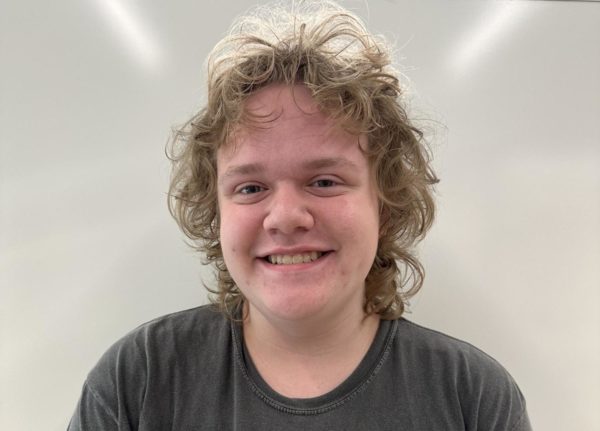There is a growing disconnect between the general public and journalists, distrust has been brewed under the surface. Instead of viewing journalists as watchdogs acting in the citizens best interest, people now encounter news with more skepticism, citing news being politically biased as one of the main reasons.
AP Government teacher Kim Thompson goes over such bias in her class, doing an entire unit on the partiality behind the media.
“We’re super vulnerable to echo chambers. So in a government class, or really any class, you know, at least examining how this news is generated, how this information comes to us, even if we don’t even seek out like we can just passively receive it; at least knowing that can shine some light on truth,” Thompson said. “It’s like throwing open the curtain and allowing some sunlight to come in and kill some of the nasty bugs.”
Being an educator media bias can be a difficult thing to cover in school, but Thompson maintains that it is necessary to teach”
“In school it’s so hard to talk about media bias in school, because we’re asking kids to consume media constantly, you know, watch this video, go find an article,” she said. “So how can we help students find some truth not just to school, but to like their actual existence?”
The general public within the past couple of decades has felt the news has become more and more partisan over time, but what is causing this feeling, as well as the very real uptake in news bias?
“We have more opportunities to consume media now; I mean, we’re carrying around supercomputers in our pockets, which wasn’t possible a few years ago, the more opportunities we have to communicate the more options we have to communicate poorly,” Thompson said. “It’s been two decades that we’ve had increasing access to pretty much anything we want, [along with] an increase in oversaturated biased opinion pieces infiltrating what appears like news.”
With new opportunities to consume media in ways previous generations haven’t it creates a new level of passive consumerism in regards to information.
“[When] we’re not actively seeking that stuff out it’s almost like ‘oh, it came to my face so easily, I wasn’t expecting it, I wasn’t on the defense,I wasn’t prepared to examine this critically,’” Thompson said. “And so I think that kind of information is more effective at reaching people because we’re not on alert, so when I can literally just look at my notifications, or open an app or whatever. I’m not poised to be discerning and critical about what I’m reading because I don’t even intend to read it. It’s just presented doctrine.”
In a world full of biased and partisan news, it can seem like there is nowhere to turn where opinions are not prevalent in the source.
“I personally advise my students to [visit other news sites] in all of my classes, because I do think it’s an easy quick way to challenge your own biases and perceptions. The only other thing would be to like, really rely heavily on first person accounts,” she said. “You know, if you want news about the Middle East, go to Al Jazeera, if you want news about Central Africa, go to All Africa, if you want news about European relationships and NATO go to BBC, but that takes a lot more effort. And that still they still aren’t immune from bias because all of those things are run by humans.”
There are of course many ways to tackle this issue, Thompson is of the mind we should face it head on.
“We should be really overt about dispelling things like conspiracy theories, we should attack false information head on. I think we’re really careful at the school and in the district, when there’s like, community uproar about things like books, or bathrooms, or race, or, you know, migration. You know, we have immigrant families all throughout this district, and then we have people that hate immigrant families, like we should be confronting those things. So it’s less scary to do so,” Thompson said. “Once you leave us you know, once you hear false information, or you hear from that just doesn’t seem right. We tiptoe around things really carefully. ‘Don’t offend anyone.’ Well, screw that. You know, trying not to offend people is how we ended up with incomplete information, false news, just settling into our biases nice and comfortable.”
But how can we move forward knowing the media we trust is just as human as the people writing it, how do we tackle biased media head on?
“I think it’s about asking, ‘how can I react to that?’ Or ‘how can I have a productive conversation with someone who maybe doesn’t understand the information that they’ve been consuming?’ ‘Is it heavily biased or incomplete?’




